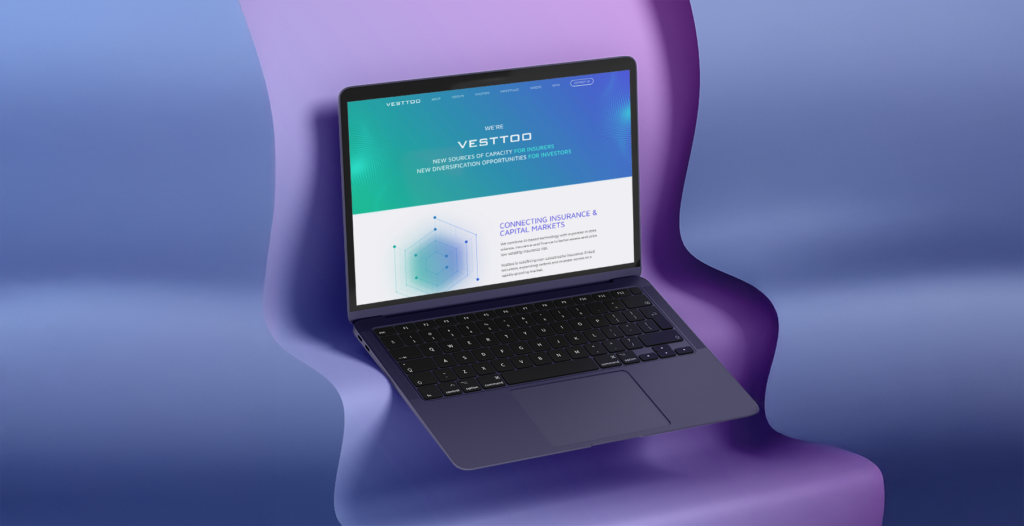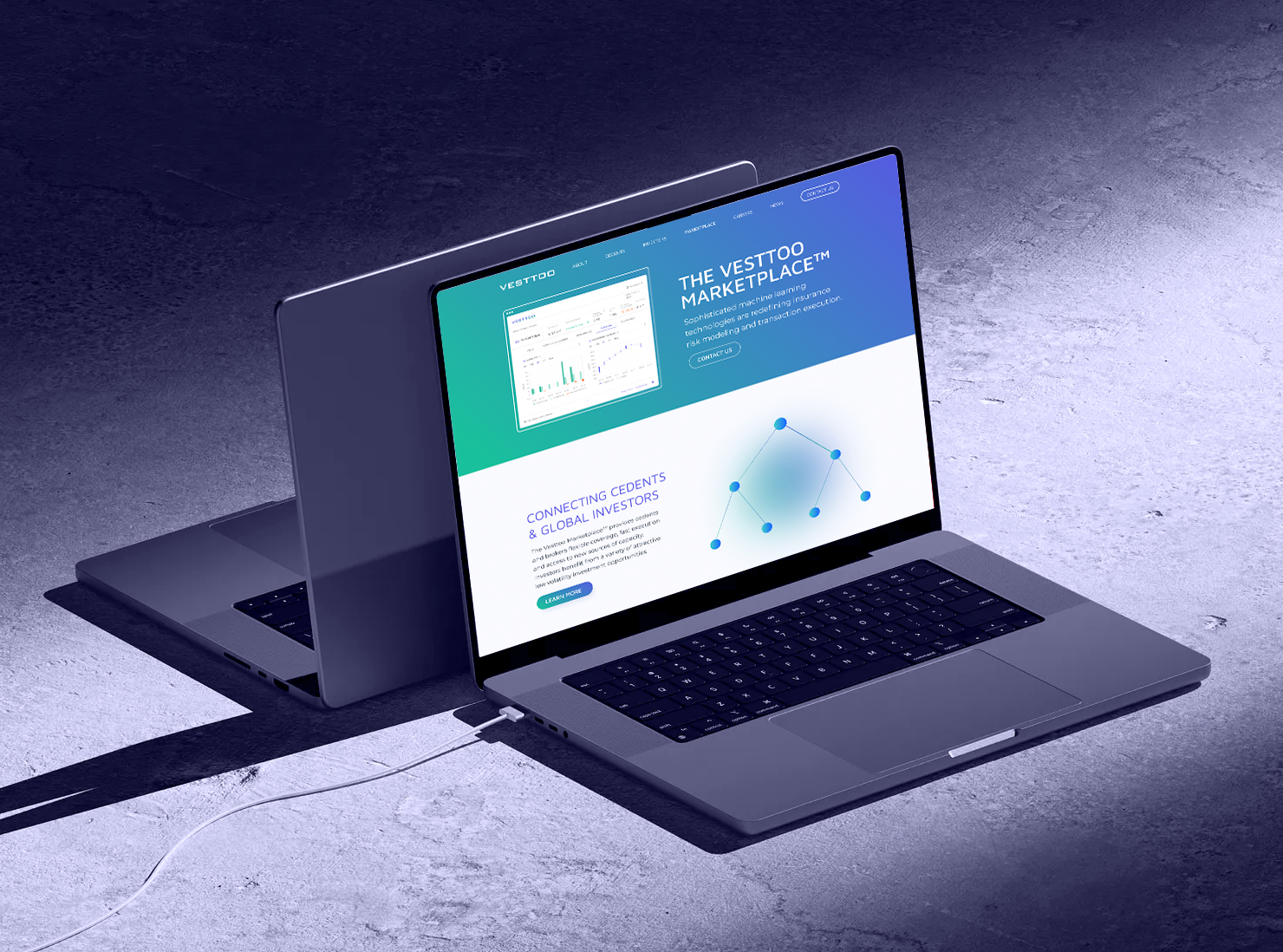Vesttoo Website UX/UI
PROJECT
Led a complete website restructure, improving UX/UI, which led to a 40% increase in user engagement.

Year:
2023
Role:
UX/UI
Tools:
Figma
CONTEXT
Vesttoo is a pioneering insurtech startup using AI and data science to revolutionize insurance risk assessment and transfer, bridging the gap between insurance companies, capital markets, and investors through innovative risk modeling solutions.
CHALLENGE
As Vesttoo grew, its website no longer supported its business and brand ambitions. Unclear messaging weakened conversion, the brand did not fully reflect the company’s vision, and a fragmented user experience caused drop-off and limited actionable insights. The redesign clarified Vesttoo’s value proposition, aligned the brand with who the company had become, and streamlined the user journey to reduce friction and improve engagement, supported by a scalable design system that strengthened usability, analytics, and enabled fast, independent updates.
MY DESIGN PROCESS
Sitemap, Navigation and Wireframes
Informed by marketing research and content collaboration, I restructured the sitemap and navigation, then designed wireframes to establish a clear content hierarchy and a more intuitive user experience across the site.
DESIGN PAGES

I created a comprehensive style document with reusable components ranging from core elements to complex layouts to ensure visual consistency, brand alignment, and efficient collaboration with developers across the website.
Styleguide UI Kit
I then collaborated with an external motion designer for micro-animations and led QA with developers to ensure responsiveness and design quality.